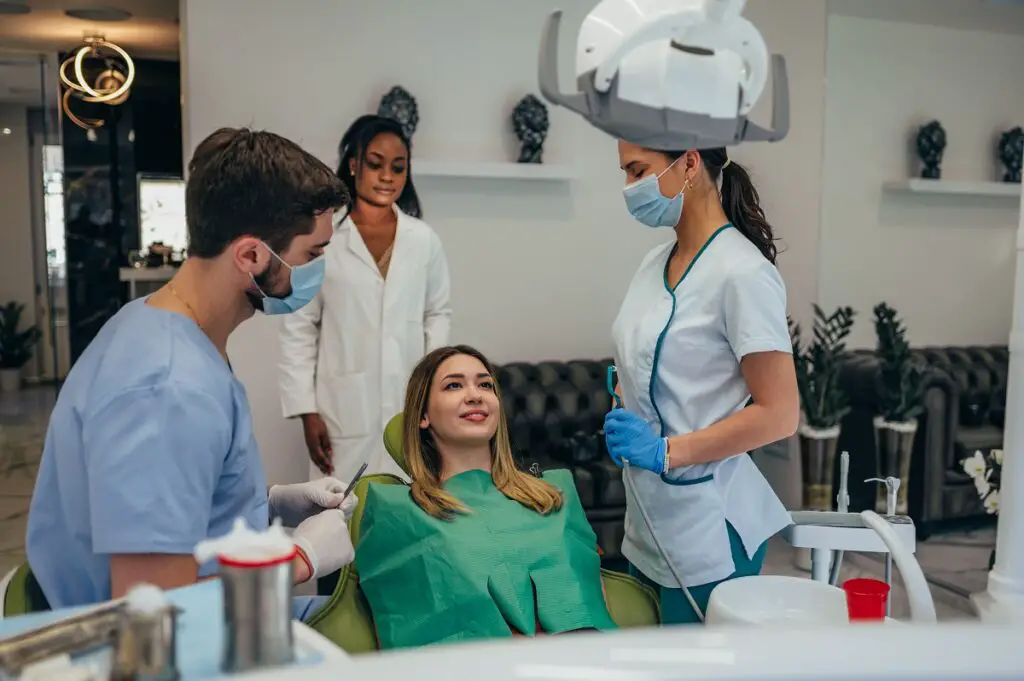As is their nature, medical emergencies are unpredictable. And unlike other health emergencies, dental emergencies are often overlooked or seen as not as urgent. But they can be. Dental care professionals should have a plan for any kind of emergency that comes their way because unexpected oral health issues can impact people’s work performance and, even more critically, their well-being. So, what should you know to be prepared for these emergencies? Let’s find out!
The Reality of Health Emergencies for Professionals
You know what they say: doctors make the worst patients. And that is the case with a lot of healthcare professionals including dentists. So, before we get into how dental professionals should prepare for their patients’ health emergencies, let’s first discuss their health.
The demanding schedules of professionals make them vulnerable to neglecting their health. So even when something is an emergency, they don’t take it as seriously as they should. Not only are emergencies somewhat ignored, but common health problems are, too. And these are the ones that can disrupt your work and life.
Because of this, as a healthcare professional, it is vital for you to regularly take steps to ensure your general well-being.
Why Dental Emergencies Deserve More Attention
Now, let’s take a look at what dental emergencies can be and why they are just as important as anything else, sometimes even more so.
Many people, not just healthcare professionals, underestimate the role dental health plays in a person’s overall health and well-being. Dental health emergencies can include infections, broken teeth, and severe jaw/tooth pain. And ignoring any of these is a bad idea.
If you have an infection, the bacteria in your mouth can be breathed in and travel to your lungs, or if your gums are bleeding, the bacteria has a fast travel pass directly to your bloodstream. Once the bacteria is in your lungs, you can develop respiratory infections, including bronchitis, pneumonia, or chronic obstructive pulmonary disease. If the bacteria in your mouth gets into your bloodstream, it can cause cardiovascular disease.
So, please do not ignore any oral health issues you may be experiencing. If you are experiencing any kind of oral issues and believe it may be urgent, you will need to find an emergency dentist Friendswood, anywhere else in Houston or the city you live in.
Establish Clear Emergency Protocols
There are things that your dental clinic can do to ensure that your staff and you are as prepared as possible when dealing with any dental emergency that may come your way. Here are the most important ones:
- Develop a step-by-step plan for handling various dental emergencies (e.g., severe bleeding, allergic reactions, knocked-out teeth).
- Train all staff on emergency procedures and assign specific roles.
- Keep emergency contact numbers (e.g., local hospitals, oral surgeons) easily accessible.
Maintain a Well-Stocked Emergency Kit
While a dental clinic may not be expected to be as prepared for emergencies when it comes to injuries and such, you should have and maintain an emergency kit in your clinic. You will need to include essential items such as gauze, gloves, pain relievers, temporary filling materials, ice packs, and hemostatic agents. You will also have to regularly check expiration dates on the components that can expire in your kit and restock as needed.
Train Staff in First Aid and CPR
Basic first aid and CPR are necessary skills for staff to learn in any healthcare clinic, even a dental one.
- Ensure all staff members are certified in Basic Life Support (BLS) and Cardiopulmonary Resuscitation (CPR).
- Conduct regular refresher courses to keep skills updated.
- Simulate emergency drills to test preparedness.
Implement an Effective Patient Triage System
Make sure that your reception staff are trained to know the signs of serious dental emergencies – over the phone and in person. Offering your potential patients same-day appointments in case of an emergency is a good policy to have, and prioritizing emergency cases if they walk in without an appointment is something you should consider implementing.
Educate Patients on Preventing Emergencies
You should educate your patients on what qualifies as a dental emergency and when to seek immediate care. This way, they will know when is the time to seek out emergency care – with you or with any emergency dentist near them – and when it is okay to wait for an appointment.
Providing your patients with guidelines on oral hygiene and teaching them habits that can prevent dental injuries is vital to ensure you avoid emergencies in the future. Offering mouthguards for athletes to reduce the risk of dental trauma will also help avoid emergencies. Lastly, you have to educate your patients on the importance of regular check-ups to catch potential issues early.
Conclusion
Planning for health emergencies, including dental ones, is essential for professionals who want to maintain their well-being and work performance. While many people recognize the importance of general medical preparedness, dental emergencies are often neglected – sometimes with serious consequences. Knowing that oral health is deeply connected to overall health and ignoring dental issues can lead to complications far beyond a simple toothache.
For dental professionals, preparation is key. Establishing clear emergency protocols, maintaining a well-stocked emergency kit, and ensuring all staff members are trained in first aid and CPR are crucial steps in creating a safer and more effective practice. Additionally, implementing a patient triage system and educating patients on preventing emergencies can help reduce the frequency and severity of urgent dental situations.
Ultimately, taking proactive steps to plan for both personal and patient-related dental emergencies not only safeguards health but also enhances the efficiency and reputation of a dental clinic. Whether you’re a professional needing emergency care or a provider offering it, readiness is crucial. By prioritizing emergency preparedness, professionals can ensure that they, their staff, and their patients receive the care they need when they need it most.

